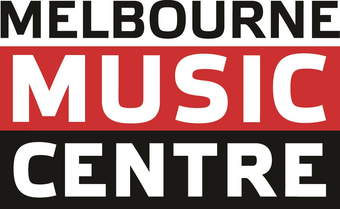In a world where racial equity remains an urgent and ongoing challenge, the power of music education is often overlooked as a tool for fostering inclusivity, empathy, and unity. Learning to play a musical instrument can serve as a catalyst for change, breaking down racial barriers and creating spaces where harmony transcends divisions. In this post, we'll explore how music education can be a solution to racial equity issues and promote a more inclusive society.
1. Music as a Universal Language
Music is a universal language that transcends cultural, racial, and linguistic boundaries. Regardless of where we come from or the color of our skin, we can connect through the universal appeal of melody, rhythm, and harmony. Learning to play a musical instrument equips individuals with a means to communicate and collaborate across racial divides.
2. Fostering Empathy and Understanding
Music has a unique ability to evoke emotions and stir empathy. When people engage with different musical traditions and cultures, they gain a deeper understanding of the experiences, histories, and perspectives of others. By learning to play instruments from diverse backgrounds, individuals can develop empathy and a greater appreciation for cultural diversity.
3. Breaking Down Socioeconomic Barriers
Access to quality music education has often been limited by socioeconomic factors, disproportionately affecting minority communities. Efforts to expand music education and provide instruments to underserved communities can help level the playing field. By reducing barriers to entry, we create more opportunities for individuals from all racial backgrounds to pursue their musical passions.
4. Building Inclusive Communities
Music ensembles, whether orchestras, bands, or choirs, thrive on diversity and collaboration. Learning to play an instrument fosters a sense of belonging within these communities, where individuals from various racial backgrounds come together to create beautiful harmonies. These shared experiences promote unity and inclusivity.
5. Empowering Youth and Future Leaders
Music education can empower young people to find their voices and express themselves creatively. By equipping youth, especially those from marginalized communities, with musical skills, we empower them to become future leaders who can advocate for racial equity and social justice.
6. Promoting Cultural Heritage Preservation
Learning to play traditional instruments from one's own cultural heritage can be a powerful way to preserve and celebrate one's roots. This connection to cultural traditions can instill a sense of pride and identity while promoting cross-cultural understanding.
7. Amplifying Underrepresented Voices
Music education can help amplify the voices of underrepresented musicians and composers. By teaching the works of artists from diverse racial backgrounds, we ensure that their contributions to the world of music are recognized and celebrated.
8. Inspiring Social Change
Music has a long history of inspiring social change and activism. Through songs and compositions, musicians have tackled issues of racial injustice, inequality, and discrimination. Learning to play instruments can empower individuals to become advocates for social change through their music.
The Soundtrack of Racial Equity
In the quest for racial equity, music education offers a powerful and harmonious solution. It has the potential to bridge divides, foster understanding, and inspire change. By promoting access to music education, celebrating diversity in musical expression, and using music as a tool for empathy and social change, we can create a more inclusive society where the sound of unity prevails.
So, let the chords of understanding resonate, the melodies of diversity flourish, and the symphony of racial equity play on, for in music, we find the soundtrack to a more just and harmonious world.

